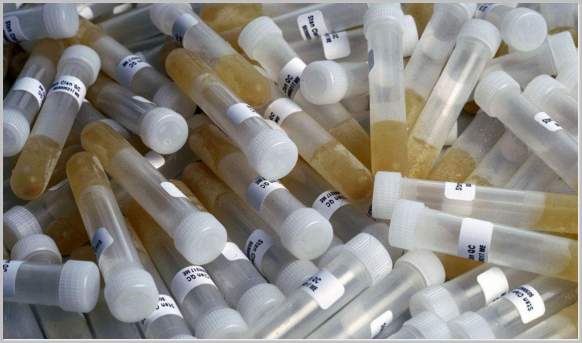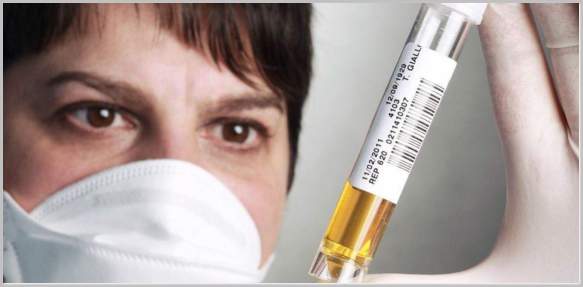
Experiencing strong, foul-smelling or cloudy urine can be a very worrying experience, and can have a variety of different causes. Fortunately however most of the causes are not that dangerous to your health, and can be treated easily and quickly. In fact a lot of the time strong smelling or cloudy urine is caused by something completely benign and not anything harmful at all. However it is always best to try to determine the cause just in case.
Medical Issues with Cloudy or Strong Smelling Urine

Cloudy urine is usually experienced early in the morning, with the first urination of the day. The reason for this is that the chemicals in the urine are more concentrated after the body not having taken on any more fluids through the night. After this the extra things that we drink through the day make the urine more dilute, and symptoms such as cloudy urine are less easy to see.
The most common cloudy urine is simply caused by excess phosphate crystals that have built up in the bladder. The main source of these is often from drinking milk, although all dairy products contain these in some quantities. Having a large meal or glass of milk before you go to bed will often produce a clouded appearance to your urine the next day, however throughout the day this will usually lessen as you take on more fluids to dilute the crystals.
Certain allergic reactions to foods or drinks will often produce urinary symptoms, although these often display other more apparent symptoms as well. Similarly foods containing certain dyes and chemicals can also alter the appearance of the urine temporarily. These only usually last for the next day however, presuming that you don’t consume the same foods again the next day. If the symptoms last more than a few days, then a doctor should be consulted to ensure infection is not the cause.
If the urine remains cloudy throughout the day, then an infection could be the reason for the clouded appearance rather than from anything you might have eaten. In these cases the clouded urine usually has an unusual color as well, and might also be accompanied by pain when urinating. This is often the case when a urinary tract infection is present, although usually this is also very painful and the burning pain will be a more noticeable symptom than the fact that the urine is cloudy.
The cloudiness in the urine in cases of urinary tract infections is actually caused by bacteria and antibodies as the body tries to fight the infection by itself. Often these kinds of infections can be treated easily with a quick trip to the doctor and a course of antibiotics. Another noticeable symptom of these infections is that the urine has a distinctly acidic smell, and seems to be of a thicker consistency than normal.
The range of colors that can be found in urine is often a lot larger than most people would assume, and usually the reasons for the changes are due to diet and medication. If the urine simply has a very dark orange or yellow tinge to it, then this is usually a sign of dehydration. In this case simply drinking more water and less of other things such as alcohol or fizzy soft drinks is the best course of action to take. Although dark urine might not seem like much of a problem by itself, dehydration can cause a large variety of different health problems, particularly over the long term.
Blood being passed into the urine is another fairly common thing to encounter at some point, and although this is obviously worrying, the cause usually isn’t serious. There are quite a few different medications that can cause blood to be passed into the urine, particularly in women, so any medications you are taking should be checked first. Secondly certain allergic reactions to food can also cause this reaction as well.
Victims of trauma such as car crashes can also frequently expect to experience changes to the color and appearance of their urine. This is often simply part of the healing process and will clear up by itself after the body has healed itself. If these symptoms continue after the rest of the injuries are healed however, and there is no other obvious cause, then a doctor should always be consulted immediately.
One of the largest causes of blood being passed into the urine is from kidney or gallbladder stones being present. In these cases there is usually extreme pain in the lower back region around the kidneys however, and this should be a better indicator of the stones than the state of the urine anyway.
Sometimes kidney or gallbladder stones can be passed naturally, and can be reduced with changes to diet and water intake. In some cases surgery or other treatments are required, however this is rare if the condition is caught early enough and the stones are still small. In the case of stones, the urine is often reduced in amount and frequency as well, and may be painful to pass, as well as being discolored.
Usually if the urine appears to be cloudy or to have a strong odor, and it is a solitary event, then it is nothing to worry about. Changes in the diet can usually explain these changes, and the effects fade away after a couple of days at the most. Most infections tend to also have other symptoms present with them, such as some kind of disruption to your usual urinary pattern as well as pain.
A good example of this is that if you were to drink a lot of coffee on a particular day, then the next day your urine might be a much darker color and have a much stronger odor. Of course so long as you return to your normal diet afterwards, then the odor and color will return to normal. People who drink tea of coffee every day in large quantities will often notice that their urine is foul smelling every day, although this isn’t a medical issue in itself.
Treatments for Strong Smelling Urine Odor
Strong and foul smelling urine is frequently the result of a dietary cause. The urine the body produces is composed of components from the food and liquids it receives. When there is an excess of strong smelling agents or a lack of neutral components, the result is often foul smelling urine odor. The key to treating urine odor usually boils down to making dietary adjustments.
Avoid pungent foods:
Certain types of food are frequently responsible for producing a foul odor in urine. Asparagus is the most notorious food for this. Large quantities of garlic, fish, onion, alcohol, and eggs among other foods with strong natural smells can similarly cause this foul urine smell. According to the Mayo Clinic, high levels of vitamin B6 can also yield urine odor. Avoid asparagus and moderate intake of other pungent foods to get rid of strong-smelling urine.
Eat plenty of fruit:
In the same way that some foods can yield strong-smelling urine odor, there are foods that have the ability to reduce the pungency of bodily fluids. What goes into the body makes up what leaves it, so when pungent foods outweigh the sweet or neutral ones, bodily fluids can take on their smell. Eat at least two servings of fruit each day to help ward off strong urine smell.
Drink plenty of water:
The concentration of urine can have a major effect on its smell and appearance. Urine is mostly water, but it also contains a variety of salts, minerals, and other waste substances. When the body is not sufficiently hydrated, the ratio of waste solutes to water increases and the result is dark foul-smelling urine. Drink at least eight glasses of water a day to regulate the urinary tract and get rid of strong urine smells.
If applicable, get treatment for a urinary tract infection (UTI):
Bacteria from urinary tract infections can cause strong-smelling urine odor. Urinary tract infection is the main non-dietary cause of this urine smell. Other symptoms of a UTI can include burning during urination, cloudy urine, and abdominal discomfort. If you experience any of these other symptoms, talk to your doctor. To treat a urinary tract infection, antibiotics are prescribed. Take the full course as prescribed by your doctor.
The causes of foul-smelling urine are frequently associated with diet or dehydration. When the body receives strong or pungent foods like asparagus, fish, and onions, urine can pick up some of that odor. Dehydration also affects urine, causing an increased composition of waste solids in urine. The ideal way to prevent foul-smelling urine is to maintain a balanced diet while drinking at least eight cups of water per day.

